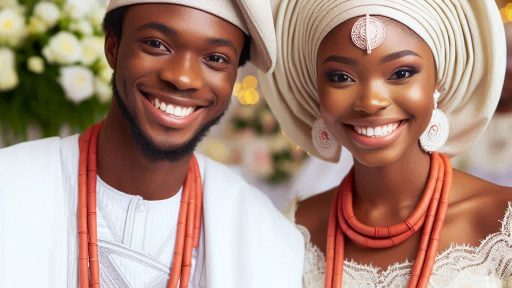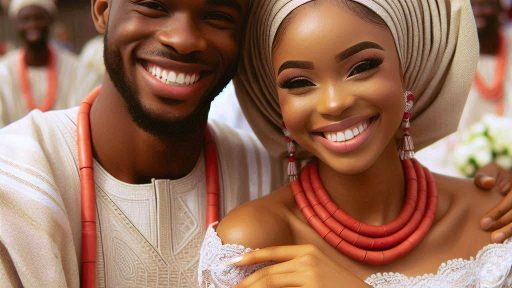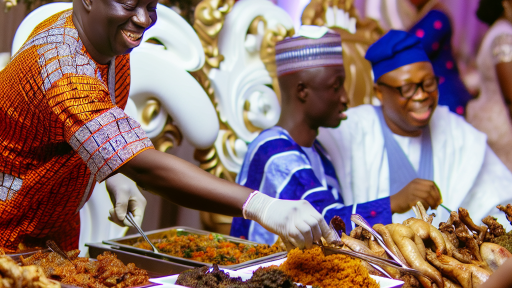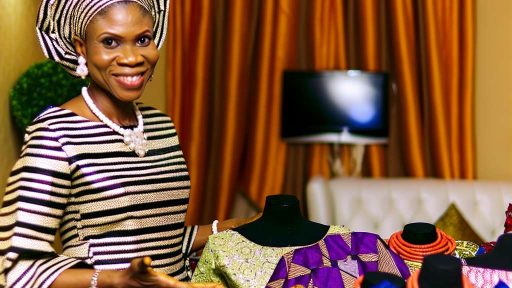Introduction
Overview of marriage significance in Igbo culture
How Igbo traditional weddings influence modern marriage practices emphasizes the deep significance of marriage in Igbo culture, symbolizing a union between families, not just individuals.
This union fosters social connections and personal growth.
Traditionally, marriage establishes lineage and continuity.
It reflects shared values and cultural heritage, making it sacred.
The purpose of exploring the influence of Igbo traditional weddings on modern marriage practices
Exploring Igbo traditional weddings reveals their enduring influence on modern marriages.
Many contemporary couples incorporate traditional elements into their ceremonies.
These influences often enhance the cultural authenticity of modern marriages.
Understanding these practices sheds light on contemporary relationship dynamics.
It emphasizes the blend of past traditions with present ideals.
Significance of understanding cultural roots in contemporary marriages
Understanding cultural roots enriches modern marriages.
It fosters appreciation for ancestry and shared values.
Couples who recognize these traditions often develop stronger bonds.
They navigate challenges by drawing on cultural wisdom and practices.
Embracing these roots enhances emotional connection and mutual respect.
Moreover, it enables families to communicate and merge ideas harmoniously.
Knowledge of cultural heritage nurtures resilience within modern relationships.
In fact, exploring the impact of Igbo traditional weddings reveals how cultural practices shape today’s unions.
This understanding not only honors past traditions but also informs contemporary marriage practices.
Embracing these valuable insights can lead to more fulfilling relationships in our ever-evolving society.
Overview of Igbo Traditional Wedding Customs
Description of Traditional Marriage Ceremonies in Igbo Culture
Igbo traditional wedding ceremonies represent a vibrant blend of culture, heritage, and spirituality.
These ceremonies highlight the importance of family and community ties.
The process usually begins with the bride price negotiation, known as “isi ohu,” where the groom’s family presents gifts.
This act symbolizes respect and appreciation toward the bride’s family.
During the ceremony, families gather to witness the union.
The couple often dresses in beautiful traditional attire, representing their cultural identity.
The atmosphere buzzes with music, dance, and joyful celebration, emphasizing communal involvement.
Each traditional wedding serves as a reminder of the past while addressing modern influences.
Key Rituals and Customs Involved in the Traditional Wedding
Numerous rituals characterize the Igbo traditional wedding.
Each ritual signifies the couple’s transition into marriage and solidifies familial bonds.
Below are some essential customs:
- Market Visit: The groom’s family visits the bride’s family, often bringing gifts and food.
- Introduction Ceremony: The couple formally introduces themselves to each other’s families.
- Elopement Ceremony: This involves the bride’s family metaphorically “capturing” the groom to symbolize commitment.
- Rituals of Acceptance: The bride’s family accepts her groom through various symbolic gestures and words.
- Drinking of Kola Nut: The couple and their families share kola nuts, representing unity and hospitality.
- Traditional Food and Drink: The celebration includes traditional delicacies and locally brewed beverages.
- Blessings from Elders: Community elders offer blessings to the couple, reinforcing familial and community support.
- Community Dancing: To conclude the ceremony, community members engage in joyful dance as a sign of celebration.
Role of Family and Community in Igbo Weddings
Family and community play pivotal roles throughout the Igbo wedding process.
The involvement of family members enriches the celebration, instilling a sense of belonging and cultural continuity.
Family members often act as mediators, ensuring smooth communication between both parties.
Elder relatives usually provide advice and blessings, reminding the couple of their responsibilities.
The community also engages actively in these ceremonies.
They bring vibrancy through music, dance, and communal support.
Their participation enhances the celebratory atmosphere while affirming cultural bonds.
In essence, Igbo traditional weddings serve as a cornerstone of family and community life.
They transmit cultural values and strengthen ties, making them a treasured experience.
The Elements of Igbo Traditional Weddings
Ndum, the Bride Price, and Its Cultural Importance
Ndum refers to the bride price in Igbo culture.
This payment carries deep cultural significance.
It symbolizes respect for the bride’s family.
The bride price fosters a bond between both families.
It also affirms the groom’s intention to care for his bride.
The bride price varies widely across different families and regions.
Some families set high expectations while others are more flexible.
Regardless of the amount, the act of giving Ndum is paramount.
It conveys the groom’s commitment and responsibility.
Ndum is not a purchase; it has more profound implications.
It represents the idea of valuing the bride.
The exchange signifies the joining of two families in unity.
A significant bride price impresses the community with the groom’s diligence.
Furthermore, the decision of the amount often involves consultations with elders.
They guide the families in setting an appropriate price.
Elders emphasize the emotional worth of the marriage over monetary aspects.
In modern marriages, discussions about bride prices often occur.
Many couples negotiate this element to adapt to contemporary contexts.
They balance tradition with modern practicality.
As such, the bride price remains a focal point in marriage customs.
The Role of Masquerades and Traditional Dress
Masquerades hold significant cultural relevance during Igbo weddings.
They represent ancestral spirits and bring blessings to the couple.
Masquerades add a colorful flair to traditional ceremonies.
Dressed in elaborate costumes, masqueraders entertain attendees.
Their performances weave together storytelling and cultural pride.
Masquerades evoke a strong sense of community unity.
They transform weddings into grand social gatherings, fostering kinship among families.
Additionally, traditional attire plays a prominent role at these ceremonies.
Both brides and grooms wear culturally significant outfits.
The bride often adorns herself in a beautiful lace gown or a wrapped Isiagu.
Accessories such as coral beads enhance her elegance.
The groom typically wears a traditional wrapper and a shirt featuring intricate designs.
These garments highlight the couple’s heritage and social identity.
Such attire showcases the beauty of Igbo culture and reinforces pride.
As modern weddings evolve, many couples incorporate traditional elements.
They fuse modern fashion trends with their ancestral attire.
This blend creates a unique personal style for their ceremony.
The styles may vary according to individual preferences and regional influences.
Consequently, couples often strive to maintain cultural authenticity while embracing innovation.
Significance of Traditional Music, Dance, and Celebratory Practices
Traditional music and dance form the heartbeat of Igbo weddings.
They bring vibrancy to the celebration while engaging all attendees.
Each dance tells a story and reveals cultural morals.
Drumming and performing music often occur during the event.
Live bands frequently enliven the atmosphere and set the tone.
The sounds of traditional instruments, like the ekwe and udu, echo joy and festivity.
Dance creates a dynamic atmosphere at the wedding.
Loved ones join in dance celebrations, symbolizing joy and community spirit.
Couples often perform special dances to mark their union.
These dances, rich in meaning, showcase the couple’s love and support from family.
They often involve synchronized movements that symbolize unity and harmony.
The rhythm merges with the happiness of the crowd, enhancing collective joy.
Celebratory practices during weddings include feasting and gifting.
Attendees enjoy local delicacies, showcasing culinary traditions.
Festivities create a lasting bond between families and guests, enriching the experience.
Gifting acts as a form of appreciation and love between families.
Often, guests present lavish gifts to the couple.
Such acts symbolize goodwill and foster lasting relationships.
Modern couples take inspiration from these musical and dance traditions.
They often blend various genres into their wedding playlists.
This musical fusion establishes a unique celebration reflective of their backgrounds.
As a result, Igbo traditional weddings set a template for modern marriage practices.
The essence of these cultural elements shapes contemporary celebrations.
Couples aim to strike a balance between honoring traditions and infusing modern personal touches.
Ultimately, the elements of Igbo traditional weddings enrich modern marriage practices.
Brides and grooms recognize the importance of cultural identity.
They actively incorporate these practices into their own celebrations.
Read: Exploring Nigeria’s Unique Traditional Wedding Rituals
Comparison of Igbo Traditional Weddings with Modern Marriage Practices
Similarities between traditional and modern wedding ceremonies
Despite the evolution of marriage practices, several similarities exist between Igbo traditional weddings and modern ceremonies.
Understanding these similarities highlights the cultural continuity that persists in the face of change.
Here are some common aspects:
- Importance of family: Both types of ceremonies emphasize the involvement of families.
Families play a crucial role in the union. - Cultural significance: Both ceremonies celebrate love, commitment, and partnership.
They embody the values of the respective cultures. - Rituals and ceremonies: Traditional rituals remain prominent in modern weddings.
Couples often incorporate these rituals to honor heritage. - Community involvement: Both types of weddings attract community participation.
Friends and family members gather to celebrate the union. - Symbolic gestures: Exchange of gifts and tokens remains a core feature.
These gestures symbolize unity and commitment.
Differences in rituals, celebrations, and societal expectations
While similarities exist, significant differences also define Igbo traditional weddings and modern marriage practices.
These differences stem from cultural shifts and changing values.
The following outlines key distinctions:
- Ritual complexity: Igbo weddings are often intricate, involving multiple rituals.
Modern weddings tend to simplify or omit traditional rituals. - Duration of celebrations: Traditional weddings in Igbo culture can span several days.
In contrast, modern weddings typically last one day. - Community roles: In Igbo culture, community elders often have essential roles.
Modern weddings may focus more on the couple’s preferences. - Symbols of wealth: Traditional weddings may showcase bride price and dowry systems.
Modern weddings emphasize personal taste and budget over such customs. - Cultural attire: Traditional wedding ceremonies feature elaborate cultural attire.
Modern weddings may adopt Western-style attire or a blend of cultures. - Gender roles: In some traditional settings, distinct roles exist for men and women.
Modern marriages often perceive partners as equals.
Influence of Western marriage trends on Igbo practices
The influence of Western marriage trends on Igbo practices has become increasingly significant.
This impact manifests in various dimensions, often leading to blended practices.
Below are key examples of this influence:
- Wedding formats: Many Igbo couples now adopt the Western one-day wedding format.
This change often comes with a focus on lavish ceremonies. - Photography and videography: Professional photography has become essential.
Couples prioritize capturing moments with modern technology. - Destination weddings: Some couples choose exotic locations for their ceremonies.
This trend adds a unique twist to traditional practices. - Social media presence: The rise of social media affects how weddings are planned.
Couples often showcase their celebrations online to gain community recognition. - Interfaith marriages: Western influences have opened doors for interfaith unions.
This shift fosters acceptance of diverse cultural backgrounds. - Wedding planning services: The emergence of wedding planners streamlines the organization process.
Couples may rely on professional services for both traditional and modern elements.
In fact, the interplay between Igbo traditional weddings and modern marriage practices reveals a rich tapestry of cultural evolution.
While similarities showcase enduring values, differences highlight the adaptation to contemporary societal norms.
The influence of Western trends continues to reshape how couples approach marriage, ensuring that both tradition and modernity coexist.
Balancing these aspects allows couples to celebrate their love uniquely while honoring their heritage.
Ultimately, this vibrant mix enriches the experience of marriage within the Igbo community.
Read: Tying the Knot: Differences Between US and Nigerian Ceremonies
Impact of Igbo Traditional Values on Modern Marriage
Continuation of Respect for Family and Societal Roles
Igbo traditional weddings emphasize respect for family and societal roles.
This tradition continues to shape modern marriages in significant ways.
- Understanding family dynamics: Modern couples often prioritize family input.
They seek approval and guidance from elders. - Roles within the marriage: Both partners understand their responsibilities.
The man often takes the role of protector, while the woman manages the home. - Respect for elders: Couples frequently consult parents or elder family members.
This respect helps foster strong family bonds and guidance. - Intergenerational communication: Modern marriages benefit from ongoing dialogue across generations.
Stories and lessons from elders enrich the relationship. - Shared values: Couples are more inclined to adopt values instilled by their families.
This fosters unity and common goals in marriage.
Maintaining these traditions ensures a strong foundation for love and respect.
It encourages partners to honor their roles and responsibilities.
Importance of Community Support in Modern Marriages
Community support plays a vital role in the success of modern Igbo marriages.
Participants often rely upon their communities for encouragement and resources.
- Collective celebration: Weddings often become community events.
Neighbors and friends gather to celebrate, reinforcing social ties. - Support systems: Families and friends provide emotional and financial support.
This fosters resilience during challenges. - Conflict resolution: Communities often step in to mediate disputes.
This creates a sense of collective responsibility for marital harmony. - Shared resources: Community members often share resources with newlyweds.
This includes household items or financial contributions, easing transitions. - Role models: Successful couples within the community serve as role models.
Their experiences offer valuable lessons and inspiration for new marriages.
The presence of a supportive community cultivates a sense of belonging.
Couples feel connected to something larger than themselves.
Preservation of Cultural Identity and Heritage in Contemporary Practices
The influence of Igbo traditional wedding customs preserves cultural identity.
Couples increasingly seek to incorporate these customs into their modern ceremonies.
- Integration of traditional attire: Many couples wear traditional attire during their ceremonies.
This showcases pride in their heritage. - Rituals and ceremonies: Unique rituals, such as the “I Do” ceremony, remain integral.
These practices link couples to their ancestry. - Use of language: Couples often incorporate Igbo language in vows.
This acts as a reminder of their roots and culture. - Traditional music and dance: Elements of traditional music enhance wedding celebrations.
Dance forms also reflect cultural heritage and unity. - Symbolic gifts: The exchange of gifts in traditional forms continues.
These gifts symbolize commitment to each other and one’s family.
By weaving traditional customs into modern practices, couples honor their heritage.
This balance fosters pride and continuity for future generations.
In essence, the impact of Igbo traditional values on modern marriage is profound.
Couples benefit from respect for family roles, community support, and preservation of cultural identity.
These elements shape happier, more resilient unions.
As modern marriages evolve, the incorporation of traditional values will ensure their relevance and sustainability.
Read: Incorporating Nigerian Culture into Your Marriage Proposal
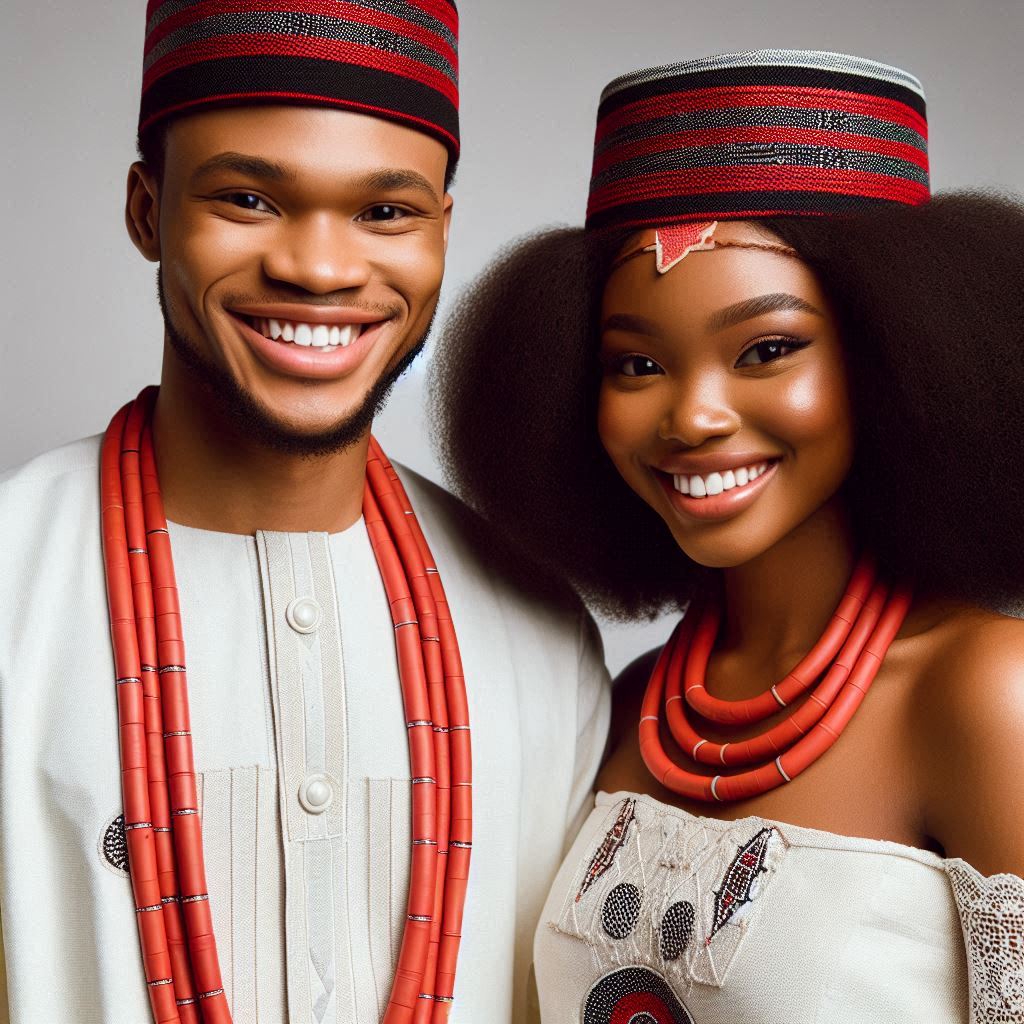
Challenges Faced by Modern Couples in Balancing Tradition and Modernity
Navigating between traditional expectations and contemporary lifestyle
Modern couples often find themselves wrestling with the expectations set by tradition.
These expectations can create considerable pressure during the wedding planning phase.
For instance, in Igbo culture, certain rites are mandatory.
Couples must navigate these requirements while incorporating their preferences.
This balancing act frequently leads to stress and confusion.
Many couples seek a contemporary lifestyle that values equality and partnership.
However, traditional practices sometimes reinforce gender roles.
For example, the expectation that the groom pays bride price can conflict with modern beliefs about shared responsibilities.
Additionally, couples may desire a more intimate wedding experience.
However, traditional weddings often involve extensive ceremonies and large gatherings, making this difficult.
This dichotomy requires couples to make tough choices.
Here are some common challenges faced by couples in this area:
- Managing financial expectations based on traditional practices.
- Pleasing family members while adhering to personal beliefs.
- Resolving disputes over wedding details, such as guest lists.
- Combining customs with modern elements, like destination weddings.
Conflicts arising from differing family backgrounds and beliefs
Family backgrounds play a crucial role in marriage dynamics.
In modern marriages, these backgrounds often vary greatly.
This variation can lead to conflicts, especially when merging different traditions.
Couples may come from families with distinct cultural or religious beliefs.
This situation can create tension regarding wedding ceremonies, customs, and rituals.
Each family may have specific expectations they consider non-negotiable.
For instance, one partner may value a traditional wedding ceremony, while the other prefers a simpler celebration.
Each viewpoint holds significant emotional weight, leading to potential disagreements.
Moreover, external family pressures can complicate the situation.
Parents may impose their beliefs on their children, expecting adherence to traditional practices.
This influence can lead to resentment and fragmentation within the relationship.
Here are some potential conflicts couples may face:
- Differing opinions on the significance of traditional rites.
- Parental pressure to conform to specific customs.
- Incompatibility of religious or cultural practices between families.
- Unresolved issues related to bride price and dowry expectations.
The impact of globalization on traditional practices
Globalization has transformed societies, blending cultures and practices across the globe.
In this context, traditional marriage practices face significant challenges.
Couples may inadvertently adopt foreign customs that clash with their local traditions.
The influence of social media amplifies these changes.
Couples often showcase their relationships online, exposing them to global trends.
They encounter diverse marriage practices that may inspire them to deviate from tradition.
For instance, many modern couples opt for themed weddings.
This trend may prioritize personal expression over traditional ceremonies.
As a result, localized customs can become diluted or disregarded.
Additionally, the rise of individualism influences modern marriages.
Couples today often prioritize personal happiness over familial duty.
This shift can undermine the importance of tradition in their relationships.
Here are several implications of globalization on traditional practices:
- Increased adoption of Western wedding trends and themes.
- Shift towards smaller, more personalized ceremonies.
- Greater emphasis on individual choice regarding wedding elements.
- Potential loss of cultural richness associated with traditional rituals.
In general, modern couples face unique challenges when balancing tradition and modernity.
These challenges range from navigating traditional expectations to confronting the impact of globalization.
Successfully addressing these challenges often requires open communication and compromise.
Couples must prioritize mutual respect to preserve both their relationship and their cultural heritage.
Read: Understanding the Importance of Marriage Rings in Igboland
Success Stories: Modern Couples Integrating Igbo Tradition
Examples of couples successfully blending traditional and modern practices
Many couples today embrace both Igbo traditions and modern marriage practices.
These couples find a balance that honors their heritage while navigating contemporary norms.
Here are some inspiring examples:
- Chidera and Amaka: This couple seamlessly merged their traditional Igbo wedding with a modern reception.
They honored the traditional rites and incorporated a DJ and photo booths to engage younger guests. - Obinna and Nneka: They opted for a traditional engagement ceremony and an intimate civil marriage.
This blend catered to their families’ expectations while prioritizing their vision. - Emeka and Ifeoma: By using traditional attire alongside modern outfits, they celebrated their cultures.
Their guests appreciated the fusion of styles during the wedding festivities. - Chukwuemeka and Uju: They held a traditional wedding on a beach, incorporating elements of their culture in a unique setting.
This innovative approach attracted many social media enthusiasts. - Kayode and Adaeze: They chose to host a virtual traditional wedding during the pandemic.
This decision allowed family across the globe to participate without physical constraints.
Benefits of maintaining cultural heritage in marriages
Blending Igbo tradition with modern practices provides numerous advantages for couples.
These benefits include:
- Strengthening Family Bonds: Upholding traditions fosters connections between families.
It enhances understanding and collaboration among relatives from both sides. - Emphasizing Shared Values: Traditional customs often highlight core values like respect, loyalty, and support.
Maintaining these values benefits couples in their journey together. - Creating Lasting Memories: Incorporating traditional elements creates unique experiences.
Couples cherish these memories while crafting their own love stories. - Encouraging Cultural Education: Modern couples educate their friends and relatives about Igbo culture.
This knowledge transfer promotes cultural unity and appreciation. - Attracting Diverse Celebrations: Blending traditions attracts guests from varying backgrounds.
This creates an exciting and inclusive celebration that honors everyone’s presence.
Lessons learned from preserving traditional values in a modern context
Couples integrating Igbo traditions into their modern marriages discover valuable lessons along the way.
These insights shape their relationships and family dynamics for the better:
- Respect is Key: Maintaining traditions reinforces the importance of respect in relationships.
Both partners learn to honor each other’s backgrounds and perspectives. - Adaptability Matters: Modern marriages require flexibility.
Couples must balance individual desires with their culture’s expectations to find common ground. - Open Communication is Essential: Discussing how to blend traditions fosters better understanding.
Clarity in communication prevents misunderstandings and promotes unity. - Shared Responsibilities are Crucial: Distributing traditional responsibilities allows both partners to take part in the cultural aspects of their marriage.
This approach fosters teamwork and balance. - Embrace Diversity: Modern couples benefit from embracing diverse cultural influences.
Incorporating traditions from other backgrounds enriches their experiences.
Couples integrating Igbo traditions into modern marriages create a harmonious blend of old and new.
They honor their ancestral roots while embracing contemporary values.
By learning from one another, they strengthen their relationships.
This blend ultimately leads to a richer, more fulfilling marriage experience.
Ultimately, the celebration of love transcends time and culture.
Couples who respect and incorporate their heritage add depth to their unions.
In doing so, they pave the way for future generations to appreciate their rich traditions.
The journey continues, as more couples find tremendous success in harmonizing their Igbo heritage with modern marriage practices.
Future of Igbo Marriage Practices
Predictions for the evolution of Igbo weddings in the coming years
As society evolves, so do its traditions.
Igbo weddings will likely witness significant changes.
The influence of globalization is undeniable.
Here are some predictions for the future of Igbo wedding practices:
- Increased fusion of cultures, blending Igbo traditions with modern practices.
- Greater emphasis on personal choice in wedding planning.
- More intimate ceremonies focusing on family over extravagance.
- Changes in bride price negotiations reflecting socioeconomic trends.
- Adaptation of traditional attire with contemporary fashion influences.
- Use of alternative venues beyond traditional communal spaces.
- Incorporation of sustainable practices in wedding ceremonies.
- Focus on meaningful experiences and personal storytelling.
The role of Technology and social media in modern Marriages
Technology and social media play pivotal roles in shaping modern marriage practices.
They have fundamentally changed how couples plan their weddings.
Here are some ways technology influences Igbo wedding traditions:
- Access to information about wedding planning through online resources.
- Social media platforms for sharing wedding announcements and updates.
- Virtual platforms for live-streaming wedding ceremonies.
- Online communities providing support and advice for newlyweds.
- Use of wedding websites for personalized invitations and RSVPs.
- Increased use of e-commerce for wedding supplies and attire.
- Digital photography capturing moments in unique and creative ways.
- Employment of mobile applications to assist in planning and budgeting.
Encouraging a proactive approach to cultural preservation
Preserving traditional wedding practices is crucial for future generations.
It ensures that cultural identity remains strong amidst modernization.
Here are key strategies to encourage this preservation:
- Engaging the youth through educational programs about Igbo traditions.
- Encouraging families to incorporate traditional rituals in modern weddings.
- Collaboration between cultural organizations to promote initiatives.
- Utilizing social media to highlight and celebrate cultural events.
- Creating platforms where elders can share oral histories and wisdom.
- Supporting local artisans and vendors who specialize in traditional goods.
- Hosting workshops that teach traditional crafts and skills.
- Encouraging dialogue within communities about cultural significance.
The future of Igbo marriage practices holds tremendous potential.
While traditions evolve, core values remain central.
The blend of modernity and tradition offers diverse possibilities.
As society navigates change, embracing both heritage and innovation is vital.
An open approach to this evolution can enrich future weddings significantly.
Conclusion
Recap of Key Points Discussed Throughout the Blog
Throughout this blog, we explored how Igbo traditional weddings shape modern marriage practices.
We examined traditional customs, such as the bride price, which emphasize family bonds.
We highlighted the communal nature of Igbo weddings, promoting support networks among families and friends.
Additionally, we discussed how these traditions fuse with contemporary values.
This fusion creates a rich tapestry for couples today.
Importance of Valuing and Integrating Traditional Customs in Modern Marriages
Valuing traditional customs is vital in today’s marriages.
It strengthens cultural identity and community ties.
By integrating these practices, couples create a sense of belonging.
This connection fosters deeper understanding and respect within relationships.
Furthermore, traditional customs reflect time-honored wisdom that can guide modern couples through challenges.
Call to Action for Couples to Embrace Their Heritage While Adapting to Contemporary Life
Couples should embrace their heritage while navigating contemporary life.
Consider incorporating traditional elements into your wedding day.
This could involve honoring family traditions or choosing culturally significant attire.
Engaging with your heritage enriches your marital journey.
It builds a foundation of respect, love, and interconnectedness.
Ultimately, blended marriages can celebrate both tradition and modernity.

